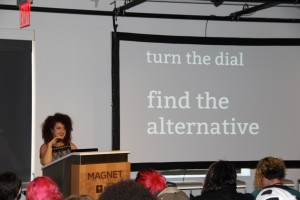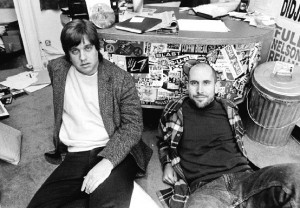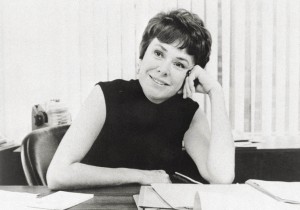The Games for Change Festival starts bright and early tomorrow morning in New York City, where game designers, investors, journalists, and researchers will gather for a four-day investigation of the current state of serious gaming. The Joan Ganz Cooney Center will be there, hoping to engage with a community who we believe possesses a cultural connection to the young learners of today.

Earlier this month, another game-focused meeting of minds took place in New York, albeit in a more intimate setting and with different goals. Presented jointly by the NYU’s School of Engineering and the Georgia Institute of Technology, the Different Games conference offered a voice to those who feel overlooked by the gaming industry, the outsiders whom journalist Leigh Alexander spoke about in her keynote speech.

A child of the ’80s and ’90s, Alexander saw a good deal of family gameplay (Atari, Centipede, Klax marathons with her sister) while, conversely, the rock music on mainstream radio stations left her feeling excluded. In her corresponding article for Gamasutra, she rejects the mainstream culture of her upbringing as misogynistic and “fixed on aspirational swagger.” The middle ground evaded her for years until, as a teen, she encountered the music of Seattle grunge and “riot grrl,” hallmarks of the alternative culture that exploded at the turn of the last century.
But even as Alexander immersed herself in the music of Nirvana and Sleater-Kinney, by the end of the 1990s, she says, gaming was still stuck in a 1980s mindset.
An alternative gaming culture exists today, thank goodness, and Different Games exists as further proof of this. Attendees left Saturday’s conference with new vigor to continue work on passion projects ranging from a game based on a 100 year-old short story to a puzzle that metaphorically depicts the evolution of the peppered moth. Though these video games cannot hope to win over the commercial industry, small batches do succeed as expressions of their developer’s passion.
Leaving the question: what is the cultural impact of this passion? Can there be, as Alexander suggested, a “Kurt Cobain of gaming” — or a “Kathleen Hanna” or a “Jim Henson”? If this person exists at all, was she in the crowd at Different Games? And will she be in line at Games for Change?

Photo by Jim Barry
The anonymous crowds gathered at a professional conference would overwhelm even the most powerful poetic soul, which is why an alternative culture (looking to get notice) requires support from enterprising minds. One party left unmentioned in Alexander’s Different Games keynote was Bruce Pavitt, the co-founder of Sub Pop Records who, in 1989, first discovered a local Seattle band named Nirvana and signed them to a three-record deal. Pavitt’s investment contributed every bit as much to Nirvana’s fame as Cobain’s knack for rocking out to saturnine poetry. Though the deal provided Cobain and his bandmates with a meager $600 advance, it’s clear that money wasn’t anyone’s bottom line. As Pavitt told Pitchfork in an interview last February, “[the Seattle scene] was actually about getting loose and letting go. It was inclusive and celebratory. The shows were insanely fun.”
In this, Bruce Pavitt echoes the sentiment expressed by so many subcultural movements of so many decades past: the currency of culture can’t always be measured in dollar signs. Our center’s namesake, for one prominent example, speaks about her early days as a producer for WNET, a time in her career when passion was her sole driving force. In the documentary Pioneers of Thirteen, produced by PBS, Joan Ganz Cooney recalls, “I felt totally that I had to be in public television. It was new in New York and it was exactly what I wanted to do.”

Source: Carnegie Corporation
Pioneers of Thirteen is a testament to the creative spirit that drives those who work outside of the mainstream, though perhaps it will shock you to know that the same network responsible for introducing Big Bird and Julia Child to the world began with the same ruff-and-tumble spirit as a locally-funded record label. “It was hilarious, though it didn’t seem so at the time,” says Cooney. “All of us were so overworked.” The creator of Sesame Street remembers winning an award for the most nervous breakdowns in a week.
But Joan Ganz Cooney (and the rest of the founding WNET team) continued showing up for work, motivated by grit and, undoubtedly, the “insanely fun” work they produced. After all, despite being a professional conference with representation from the indies and industry itself, Games for Change is about the games first and foremost. Therefore, to all the Cobains, Brownsteins, Pavitts, Redfords, and Cooneys of gaming: we gleefully anticipate our meeting tomorrow. Let’s all have some fun.



